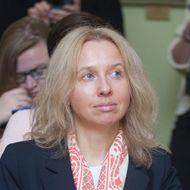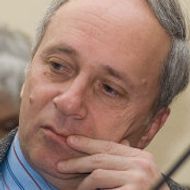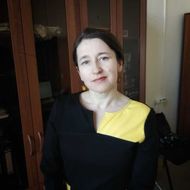- A
- A
- A
- ABC
- ABC
- ABC
- А
- А
- А
- А
- А
- HSE University
- Faculties
- Faculty of Humanities
- School of History
- News
- Dmitriy Dobrowolski’s Presentation at Oxford
105066 Moscow, Staraya Basmannaya 21/4, building 3
Phone: +7 (495) 772 95 90 *22858
The HSE School of History was established in 2015 on the basis of the HSE faculty of history. The School's staff brings together leading scientists in various fields of historical knowledge who are widely known and respected in Russia and the international academic community. The School’s instructors are leading historians are authors of numerous books and articles, regular participants in major international scientific forums and research projects, and are also known as popularizers of historical knowledge. The HSE School of History actively cooperates with leading foreign universities and research centers, and organizes international scientific conferences, symposia, and colloquiums.
Strasbourg: Presses universitaires de Strasbourg, 2023.
Misiak M., Butovskaya M., Sorokowski P.
Food Quality and Preference. 2024. Vol. 114.
In bk.: Picturing Russian Empire. Oxford: Oxford University Press, 2024. Ch. 6. P. 66-73.
Kolesnik A., Rusanov A.
Working Papers of Humanities. WP. Издательский дом НИУ ВШЭ, 2021. No. 205.

Dmitriy Dobrowolski’s Presentation at Oxford

Dmitriy Dobrowolski, Associate Professor at the HSE School of History, spoke at the conference on ‘In Search of Old Russian Ethnicity: The Table of Nations in Russian Chronicles of the Eleventh – Thirteenth Centuries’.
The topic of the paper was when and in what form the Old Russian chroniclers in 11th –13th centuries referred to genealogy of nations, which had been built by medieval intellectuals on the basis of Genesis, as well as to the closely related legends about the world being divided among the sons of Noah. Comparison of the unearthed references to these stories demonstrated clear differences between the late 13th-century chronicles and earlier writings, all of which is important in understanding the development of the historical self-consciousness of Old Rus.
The full programme of the conference can be viewed on the Centre’s website.
- About
- About
- Key Figures & Facts
- Faculties & Departments
- International Partnerships
- Faculty & Staff
- HSE Buildings
- Public Enquiries
- Studies
- Admissions
- Programme Catalogue
- Undergraduate
- Graduate
- Exchange Programmes
- Summer University
- Summer Schools
- Semester in Moscow
- Business Internship
-
https://elearning.hse.ru/en/mooc/
Massive Open Online Courses
-
https://www.hse.ru/en/visual/
HSE Site for the Visually Impaired
-
http://5top100.com/
Russian Academic Excellence Project 5-100
- © HSE University 1993–2024 Contacts Copyright Privacy Policy Site Map
- Edit



